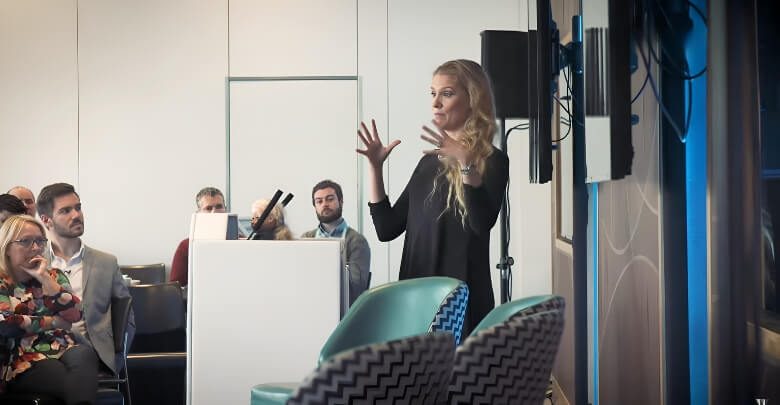Many individuals turn to conferences when it comes to professional development and staying updated in one’s field. These events offer a chance to learn from experts, connect with peers, and explore new trends. But as professionals consider attending, a common question arises: Is a conference considered work?
Yes, a conference is often considered work, especially when it aligns with your professional goals and responsibilities. Attending sessions, networking, and even presenting at conferences are viewed as extensions of your job. By engaging in these activities, you will improve your skills, knowledge, and industry connections.
If you’re curious about this topic, you’re in the right place. This article provides all the necessary information, helping you understand how conferences can be a valuable part of your professional development.
Purpose of Conference
The purpose of conferences is to provide professionals with a platform for knowledge sharing and gathering. These events bring together experts, researchers, and practitioners to discuss the latest trends, innovations, and challenges in their fields. Participation in the event allows participants to gain exposure to new ideas and perspectives that can improve their knowledge and abilities.
Networking is another key purpose of conferences. These gatherings provide opportunities for attendees to connect with peers, industry leaders, and potential collaborators. Building these relationships can lead to future partnerships, mentorships, or job opportunities, making networking a crucial element of the conference experience.
Conferences also offer a stage for professionals to present their work. Whether presenting through talks, posters, or panels, presenting at a conference allows individuals to share their research, projects, or ideas with a wider audience. This can lead to valuable feedback, recognition, and opportunities for further development.
Finally, conferences contribute to professional growth and development. The knowledge and skills gained, the connections made, and the exposure to industry trends all play a role in advancing one’s career. By participating in these events, professionals can stay updated and competitive in their respective fields.
Is a Conference Considered Work?
Taking part in conferences can be an important part of your professional development. Learning, networking, and career growth are all possible at these events. However, the perspective of considering conference as work can influence how you view and benefit from these experiences.

Aligning Conference Goals with Work Objectives
It’s essential to align your goals with your professional objectives when attending a conference. Participating in sessions and discussions should be viewed as part of your job responsibilities. This alignment ensures that the knowledge and connections you gain contribute directly to your role and organization.
Active Participation as Professional Engagement
A conference engagement goes beyond simply attending sessions. It involves participating in discussions, asking questions, and networking with peers. Approaching these activities with seriousness and dedication, as you would any professional task, ensures you maximize the value of the event.
Using Conference Learnings in Your Workplace
The insights and knowledge gained from conferences can be invaluable when applied to your job. Whether it’s a new strategy, a technological innovation, or a different perspective on a challenge, bringing these learnings back to your workplace demonstrates actual benefits that can directly impact your performance and contributions.
Networking as Professional Development
You should consider networking at conferences an integral part of your professional development. By building relationships with industry leaders and peers, you expand your professional network, which can lead to new opportunities and collaborations. Focusing on making meaningful connections enhances your overall experience.
Presenting at Conferences as a Career Advancement
When you present at a conference, you aren’t just sharing your work; you are marking a significant career milestone. Presenting increases your credibility, positions you as a thought leader, and can open doors to further professional opportunities, solidifying your reputation in your field.
Reflecting on Conference Experience in Your Professional Growth
After the conference, it’s important to reflect on your experiences and how they contributed to your professional growth. Whether through improved skills, expanded knowledge, or new connections, recognizing these contributions helps you see these events as essential to your career development.
Conferences play a vital role in professional growth. Viewing them as an extension of your work responsibilities ensures that you gain the most from these experiences. The knowledge, skills, and connections you acquire can significantly impact your career.
Advantages of Going to Conferences for Professional Development
Conferences offer a unique platform for professionals to improve their careers. Attending these events can open new doors, provide fresh perspectives, and connect you with like-minded individuals. The experience of being at a conference is more than just attendance; it’s an opportunity to grow.
Introduction to New Ideas and Trends
Attending a conference exposes you to the latest trends and innovations in your industry. Keynote speakers, workshops, and panel discussions offer insights that can inspire new approaches in your work. This introduction to fresh ideas can drive your projects forward and keep your skills up to date.
Opportunities for Skill Improvement
Conferences are not just about listening; they are about learning. Workshops and hands-on sessions allow you to develop new skills or refine existing ones. Participating actively in these learning opportunities provides practical experience that can be directly applied to your professional life.
Networking with Industry Leaders
One of the significant advantages of attending conferences is the networking opportunities they provide. You meet industry leaders, peers, and potential collaborators. These connections can lead to mentorship opportunities, partnerships, or even job offers. Being present at the conference increases your visibility in the industry, making you a known entity in your professional community.
Presenting Your Work and Ideas
Conferences also offer a platform to present your work and ideas to a broader audience. Whether you are giving a talk or participating in a panel, showcasing your expertise can boost your credibility and reputation. This opportunity to share your knowledge can lead to recognition and further professional opportunities.
Personal and Professional Growth
Attending conferences contributes to both personal and professional growth. The learning, networking, and introduction to new ideas help you grow in your career. By sharing your knowledge and experiences with others, you also gain confidence as a result of the experience. This growth is invaluable for your career progression.
Conferences are valuable opportunities for professional development. The benefits of attending, from learning new skills to expanding your network, can significantly impact your career. Embracing these opportunities allows you to grow and succeed in your professional career.
What Skills Can Be Improved by Attending Conferences?
Attending conferences is more than just an event; it’s an opportunity to grow professionally. These gatherings provide valuable experiences that contribute to your development. Let’s explore the skills you can enhance through participation.
- Communication Skills: Engaging in discussions, presentations, and networking at conferences helps refine your communication abilities, making it easier to convey ideas clearly and effectively.
- Networking Abilities: Building connections with peers, experts, and potential collaborators improves your networking skills, opening doors to future opportunities and professional relationships.
- Problem-Solving Skills: Listening to new ideas and industry challenges during sessions encourages creative thinking, helping you develop stronger problem-solving strategies for your work.
- Leadership Qualities: Participating in or leading discussions at conferences allows you to practice and improve your leadership skills, increasing confidence in guiding teams or projects.
- Time Management: Balancing multiple sessions, networking events, and personal goals during a conference teaches you effective time management, ensuring you make the most of the experience.
- Adaptability: Conferences often present unexpected situations, requiring adaptation quickly. This flexibility is crucial in dealing with changes and challenges in your professional life.
- Technical Knowledge: Attending workshops and technical sessions deepens your expertise in specific areas, allowing you to stay current with the latest industry advancements.
Conferences are valuable experiences that contribute to your ongoing professional development. The skills you develop through active participation can play a significant role in your career growth and success. Embracing these opportunities will benefit your journey ahead.
How Does Networking at Conferences Impact Professional Relationships?
Your professional development can be greatly influenced by networking at conferences. By understanding its nuances, you are better able to take advantage of it and maximize its benefits. Let’s explore how these interactions shape your professional relationships.
Building Trust Through Personal Interaction
Face-to-face interactions at conferences allow for the development of trust that is often hard to establish through digital communication. When you meet someone in person, it becomes easier to connect on a personal level. This trust can lay the foundation for long-term professional relationships. Additionally, understanding conference requests can further improve these connections, ensuring you engage with others meaningfully.
Exchanging Ideas and Expertise
Conferences provide a platform for exchanging ideas and sharing expertise. When professionals come together, they bring diverse perspectives and knowledge. This exchange can lead to innovative collaborations and joint ventures. Being present and actively engaging in discussions can elevate your professional standing, making you a valuable contact for others in your field.
Expanding Your Professional Network
The broader your network, the more opportunities you have to grow professionally. Conferences are ideal for expanding your network beyond your personal circle. You meet people from different regions and industries, all with unique experiences. These connections can lead to future collaborations, job offers, or mentorship opportunities that significantly impact your career trajectory.
Gaining Insights into Industry Trends
Conferences are not just about networking; they are also about learning. By attending various sessions and talks, you gain insights into the latest industry trends and innovations. This knowledge can be valuable in your current role and future career moves. Networking with experts and industry leaders during these events can deepen your understanding of these trends, keeping you ahead of the curve.
Improving Communication Skills
You can also improve your communication skills by networking at conferences. Engaging with different people, presenting your ideas, and participating in discussions can refine how you present your thoughts. It is crucial to develop and improve good communication skills in order to maintain and build professional relationships. Conferences are an ideal venue to practice and improve this skill.
Taking part in conferences can change your professional development. The connections and knowledge you gain can shape your career path, making it essential to approach these opportunities thoughtfully.
Frequently Asked Questions
Professional development relies heavily on conferences, but many professionals wonder if they are considered part of their job duties. Understanding how conferences fit into your job role can help you maximize the benefits and approach these opportunities effectively.
Can Attending a Conference Be Included in Work Hours?
Yes, attending a conference can be included in your work hours, especially if it directly relates to your job responsibilities. Many employers recognize the value of conferences for professional development and may count this time as part of your official work schedule.
Do Companies Typically Cover the Cost of Conferences?
Many companies cover the cost of conferences, viewing them as an investment in employee development. This can include registration fees, travel expenses, and accommodations, particularly if the conference aligns with the company’s goals and the employee’s role.
How Should I Document Conference Participation at Work?
It is important to document conference participation for both personal and professional records. You can provide a summary of sessions attended, key takeaways, and how the knowledge gained will be applied to your work. This can be shared with your manager or included in performance reviews.
Is It Necessary to Report Back on Conference Learnings?
Reporting back on conference learning is often encouraged, as it demonstrates how the event contributed to your professional development. Sharing insights with your team or creating a brief report can show how the information will be used to benefit your organization.
Can Conference Attendance Be Included in Performance Evaluations?
Yes, conference attendance can be included in performance evaluations. Highlighting your participation and the skills or knowledge gained can show your commitment to ongoing professional development, which may positively impact your performance review and career
Bottom Lines
Engaging in conferences clearly extends beyond mere attendance; it represents a significant part of professional responsibilities and growth. Thus, when questioning, “Is a conference considered work?” the answer is definitively yes, as it aligns with improving your professional development.
To make the most of your conference experience, prepare thoroughly, actively participate, and share your learnings with your team. These practices not only increase your knowledge but also improve your professional reputation. Best wishes as you continue to take advantage of these valuable opportunities for your career advancement.







